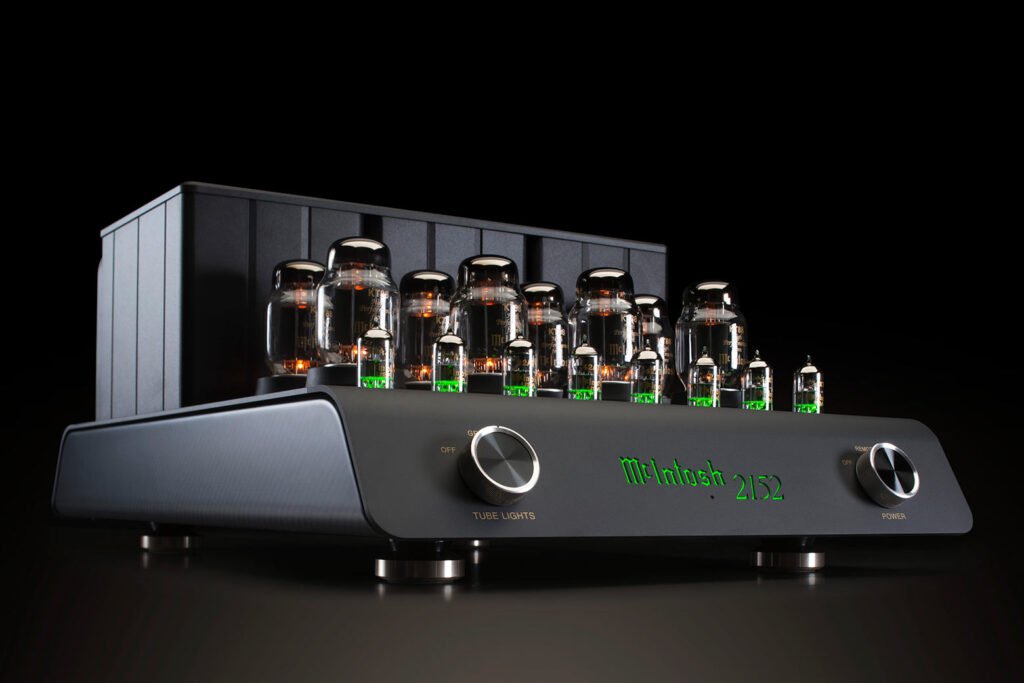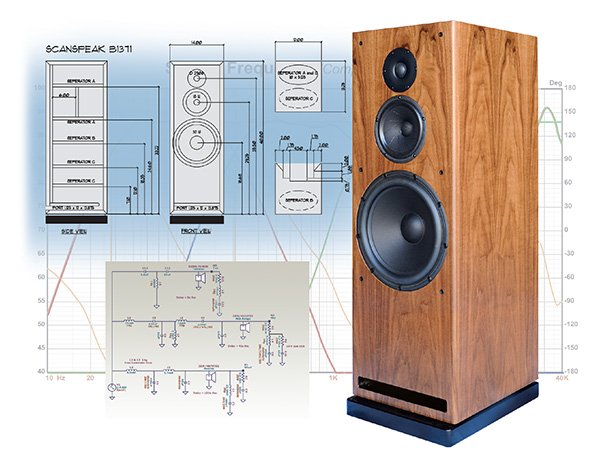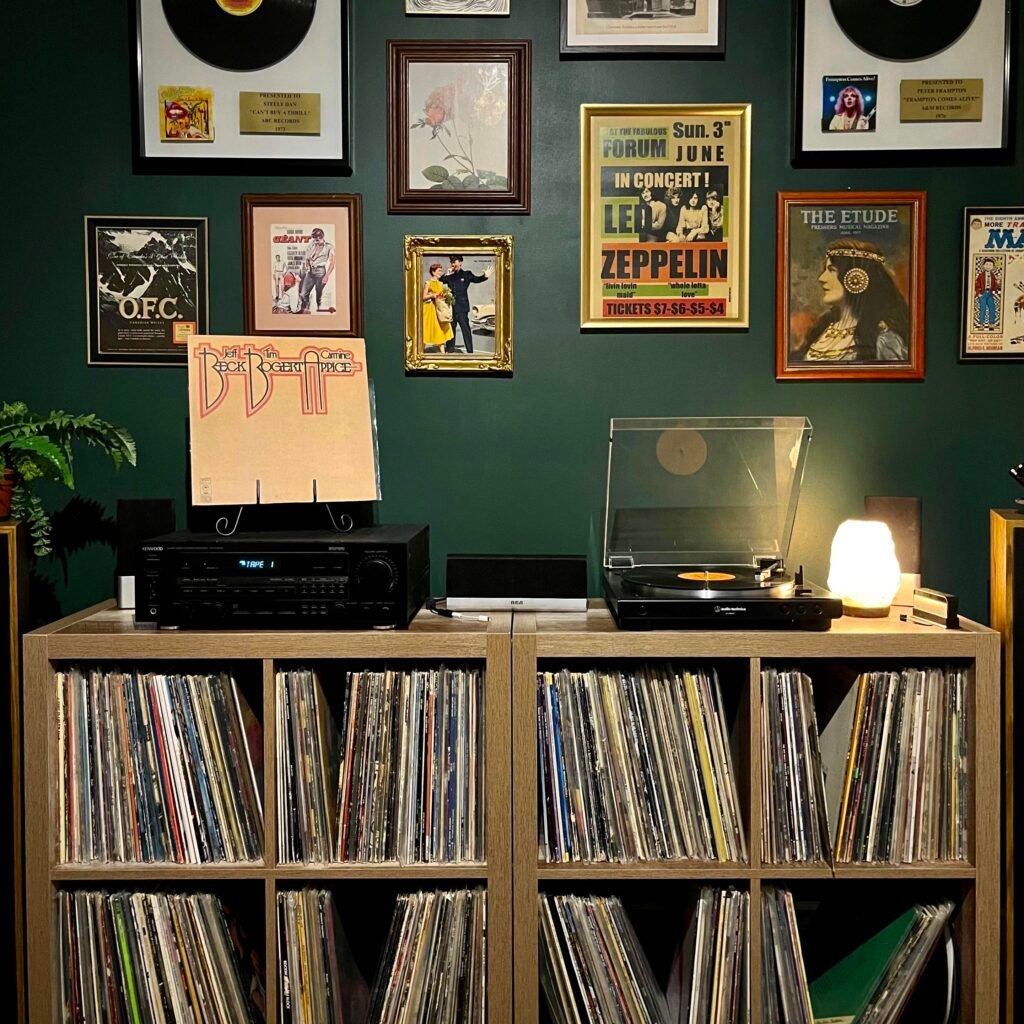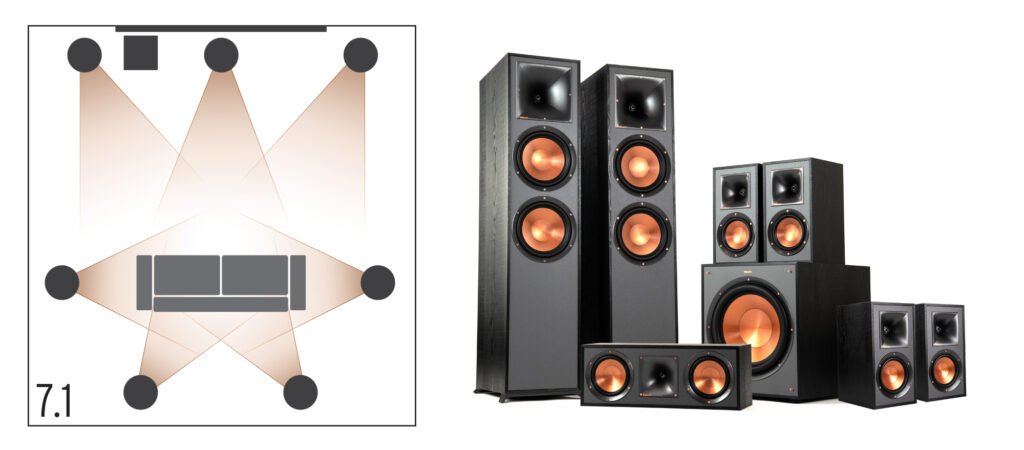In an era of instant streaming and smart speakers, there’s a quiet revolution happening in garages, dens, and home workshops. It’s not about convenience—it’s about craft, control, and character.
In 2025, more men than ever are embracing audio engineering as the ultimate masculine hobby. They’re building their own sound systems from scratch, crafting custom speakers, resurrecting tube amplifiers, and curating vinyl listening dens that reflect personal style and sonic power.
This movement isn’t just about listening to music. It’s about designing a deeply personal experience, mastering an ancient craft, and creating spaces that embody strength, precision, and pride.
Here are 7 powerful reasons why men are diving into DIY audio engineering and building their own sound systems this year.
Table of Contents
1. The Return of the Tube Amp: Analog Warmth & Masculine Precision
The iconic glow of a vacuum tube isn’t just for show—it symbolizes a return to pure analog sound. Tube amplifiers produce a warm, rich, and dynamic tone that solid-state devices simply can’t replicate.

For many men, building or restoring a tube amp is a rite of passage. It’s a project that demands patience, attention to detail, and respect for electrical engineering. From winding transformers to soldering connections, every step brings a sense of mastery.
The result? A custom amplifier that delivers unparalleled sound quality and aesthetic appeal. It’s audio art, merging technology with timeless design.
Beyond the sound, there’s pride in reviving forgotten tech—taking a century-old invention and optimizing it for modern use. It’s craftsmanship with a masculine soul.
2. Speaker Building: The Craft of Sonic Architecture
Speaker building is an act of creation—designing a device that transforms electrical signals into emotional experiences. And in 2025, more men are getting hands-on with woodworking, circuitry, and acoustics to craft bespoke speakers.

This DIY path lets men tailor every element—woofer size, enclosure shape, crossover design—to their own taste. Want thunderous bass for hip-hop? Crystal-clear highs for jazz? You can build that.
Plus, there’s a tactile pleasure in working with materials like oak, walnut, or mahogany, giving each speaker a unique, rugged beauty. The process is a blend of engineering and artistry, offering both technical satisfaction and visual pride.
The final payoff? A custom sound signature that no off-the-shelf speaker can match.
3. Vinyl Listening Dens: Designing Personal Sanctuaries of Sound
The masculine sound experience isn’t complete without a dedicated listening den. These aren’t just rooms—they’re curated sanctuaries designed for deep listening, contemplation, and connection.

Vinyl has made a massive comeback, and with it comes the ritual of the listening experience. Selecting a record, dropping the needle, and sitting back in a leather armchair while rich analog sound fills the room—it’s a ritual that embodies patience and presence.
Men are investing in acoustic treatments, vintage furniture, and ambient lighting to create spaces that optimize sound quality and aesthetic ambiance. It’s about more than music—it’s about crafting an environment where every session feels intentional and immersive.
In a fast-paced world, a listening den is a space to slow down, reflect, and reconnect with the soul of sound.
4. The Psychological Edge: Why Men Prefer Hands-On Audio Engineering
There’s a deeper psychological pull behind this DIY movement. In an age of mass production and digital everything, building your own sound system represents a form of personal agency—the power to create, refine, and perfect.
Men, by nature, are often drawn to problem-solving, tinkering, and mastering complex systems. Audio engineering satisfies this itch, offering a challenging yet rewarding journey from raw materials to finished masterpiece.
It’s also a form of legacy. A handcrafted amp or speaker isn’t just a device—it’s something you can pass down, a symbol of your skill and patience.
This hobby also strengthens focus and discipline—skills that translate into other areas of life. There’s pride in knowing that every sound you hear came from something you built with your own hands.
5. Essential Tools & Materials for DIY Audio Engineering
Getting started in audio engineering requires some essential tools and components. Here’s a basic kit to launch your journey:
- Soldering iron & solder: For wiring components with precision.
- Multimeter: To test circuits and troubleshoot issues.
- Wire cutters & strippers: For clean, accurate connections.
- Oscilloscope: To visualize audio waveforms during testing.
- Woodworking tools: For building speaker enclosures—think saws, sanders, clamps.
- Amplifier kits: For beginners, pre-packaged tube amp kits are a great entry point.
- Audio-grade capacitors & resistors: To ensure optimal sound performance.
- High-quality speaker drivers: For building custom speakers with your desired frequency response.
Having the right tools isn’t just practical—it’s part of the experience. Every tool adds to your arsenal of craftsmanship.
6. Learning the Craft: Communities, Forums & Courses for Sound Enthusiasts
You don’t have to go it alone. In 2025, vibrant online communities and resources exist for men diving into audio engineering.
Top Forums and Communities:
- DIYAudio.com: A massive global forum with advice on amps, speakers, and more.
- Reddit’s r/diyaudio: Great for troubleshooting and inspiration.
- The Vinyl Community on YouTube: For ideas on setting up listening dens and gear reviews.
- Audiokarma.org: Vintage audio lovers unite here.
Recommended Courses:
- Coursera: Audio Signal Processing: For understanding the technical side of sound.
- Udemy: Build Your Own Tube Amp: Step-by-step guidance on amplifier construction.
- YouTube Channels: Like ‘PSAudio’, ‘Tech Ingredients’, and ‘Steve Guttenberg Audiophiliac’.
These resources connect you with mentors, peers, and experts who share your passion. Plus, sharing progress and insights in these groups enhances the sense of brotherhood and camaraderie.
7. Beyond Music: Building Audio Systems for Home Theaters & Gaming
Custom sound systems aren’t just for vinyl heads. Many men are now applying their DIY audio skills to home theaters and gaming setups.

Imagine building a 7.1 surround sound system, perfectly tuned to your living room’s acoustics. Or crafting a desktop audio rig that delivers cinematic soundscapes for immersive gaming.
By building your own system, you can:
- Customize sound balance for action movies, sports, or RPG games.
- Eliminate audio latency for real-time gameplay.
- Design sound environments that rival professional theaters.
This turns a passive hobby into a functional, daily luxury—an enhancement to leisure time that you personally engineered.
Frequently Asked Questions (FAQ) About Masculine Audio Engineering
1. Why are men interested in building their own audio systems in 2025?
Men are seeking hands-on hobbies that combine skill, craftsmanship, and control. Building audio systems provides technical challenge, creative satisfaction, and a personalized listening experience.
2. Is DIY audio engineering difficult for beginners?
It can be challenging at first, but there are many beginner-friendly kits, guides, and online tutorials that simplify the process. With patience and the right tools, anyone can start.
3. What are the main benefits of building your own audio system?
You gain complete control over the design, sound quality, and aesthetic. Plus, you develop valuable skills in electronics, woodworking, and acoustics.
4. What’s the advantage of tube amplifiers in audio systems?
Tube amps provide warmer, richer, and more dynamic audio compared to solid-state amplifiers. They also have a vintage aesthetic that many find appealing.
5. How much does it cost to build a custom audio system?
Costs vary. A simple DIY speaker or amp can start around $200-$300, while high-end custom builds can run into thousands depending on components and materials.
6. Do I need to be an engineer to build audio equipment?
Not at all. While engineering knowledge helps, many hobbyists start with no formal background. Community support and learning resources make it accessible to anyone.
7. What tools are essential for audio engineering projects?
You’ll need a soldering iron, multimeter, wire cutters, woodworking tools, and sometimes an oscilloscope for advanced projects.
8. Can I build my own speakers without woodworking skills?
Yes, many speaker kits come with pre-cut parts, or you can use simple woodworking plans. Basic skills can be learned through online tutorials.
9. Is there a difference between building an audio system for music versus gaming?
Yes, music systems focus on rich, balanced tones, while gaming audio setups often emphasize directional sound and immersive effects like surround sound.
10. How do I optimize a room for the best audio experience?
Use acoustic panels, heavy curtains, and rugs to reduce echo. Speaker placement and furniture arrangement also significantly impact audio clarity.
11. What is a vinyl listening den?
A dedicated space designed for playing vinyl records with optimal acoustics, comfort, and ambiance tailored for immersive listening.
12. Are vintage audio components worth restoring?
Absolutely. Vintage components, like old tube amps or turntables, often have superior craftsmanship and can be restored for excellent performance.
13. How do I choose the right speakers for my DIY audio system?
Consider the size of your room, the type of music or media you enjoy, and your desired sound profile (bass-heavy, balanced, crisp highs).
14. What’s the best way to learn audio engineering from scratch?
Start with online courses, YouTube tutorials, and community forums like DIYAudio.com. Begin with simple projects and scale up as you gain confidence.
15. Is building your own audio system better than buying branded ones?
If you value customization, learning, and craftsmanship, DIY is superior. However, it requires time and effort, unlike off-the-shelf options.
16. Can DIY audio systems match the quality of high-end commercial brands?
Yes, with the right components and craftsmanship, DIY systems can rival or even surpass commercial products in sound quality.
17. What safety precautions should I take when building audio equipment?
Always unplug devices when working on them, use insulated tools, and understand basic electrical safety to prevent shocks or component damage.
18. Are there communities where I can get feedback on my audio builds?
Yes, communities like Reddit’s r/diyaudio, DIYAudio forums, and various Facebook groups are great for advice, feedback, and showcasing your work.
19. Can I integrate modern tech like Bluetooth into custom audio systems?
Definitely. Many DIY enthusiasts integrate Bluetooth modules, digital-to-analog converters (DACs), and even smart features into their builds.
20. What is the most rewarding part of audio engineering as a hobby?
For most men, it’s the satisfaction of building something functional and beautiful with their hands, while enjoying superior, personalized audio experiences.
The Masculine Sound Renaissance: Why Now?
So why is 2025 the year of the masculine sound renaissance?
Partly, it’s a backlash against the digital and disposable. Men are seeking ways to reconnect with the tangible, the analog, the enduring.
Additionally, there’s a growing emphasis on skill-building hobbies—crafts that not only entertain but cultivate discipline, focus, and expertise.
Building your own sound system is both an art and a science. It brings together physics, carpentry, electronics, and design into a hobby that is as practical as it is pleasurable.
It’s a statement: in a world of passive consumption, we can still build, design, and master.
Build Your Legacy in Sound
In a society driven by convenience and automation, taking the time to build your own sound system is an act of rebellion and craftsmanship. It’s about more than audio—it’s about personal power, patience, and pride.
Whether you start with a simple tube amp kit, craft your first speaker, or transform a room into an audiophile’s dream den, every step is a brick in your legacy.
Don’t just settle for factory-made mediocrity. Instead, shape sound to your taste. Learn the craft, master the process, and create a system that resonates with your identity.
Are you ready to craft your own masculine sound system? Start today. Gather your tools, join the community, and build something that echoes your strength for years to come. Subscribe to MindGearMen.


